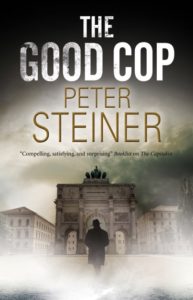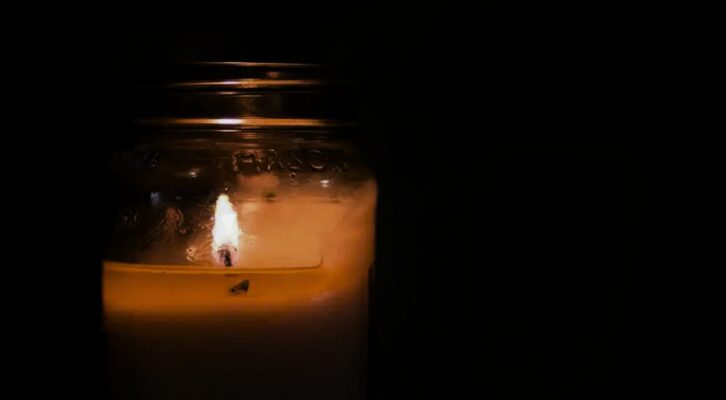To my knowledge, no one has ever called Franz Kafka a crime writer, but I find myself asking, why not? Here’s how his great novel The Trial begins. “Someone must have falsely accused Josef K. of something, because, one morning, without having done anything wrong, Josef K. was arrested.” (All translations are mine.)
It is true that The Trial is not about crime as we know and understand the word or the deed. The book begins with K’s arrest and proceeds with specific, though by no means illuminating, details about the legal procedures and processes he goes through. There are arresting officers, there is a judge, there are bailiffs; Josef K. has a lawyer representing him. But these officers of justice behave in the most bizarre and inscrutable ways you can imagine. Moreover, whatever crime K. is supposed to have committed is never revealed to him or to us. In fact, the crime is almost beside the point.
K.’s first instinct on being arrested is to search for meaning in this un-understandable moment and, finding none, to impose meaning of his own. This seems both a sensible and a ridiculous response. His arrest has come about in such a way that it is all but unrecognizable as an arrest. We (and Josef K.) only know he has been arrested because the arresting officers—who are unlike any arresting officers we have ever seen—announce that he is being arrested. It happens this way. He rings the bell so the maid can bring his breakfast, and instead of the maid, the oddly dressed and somewhat comical officers come in and announce he is being arrested. Apparently they had been waiting for him to ring the bell; if he had not rung, one wonders whether he would have been arrested at all. The officers menace and threaten him a bit. The supervising inspector, who has somehow set up in an adjoining apartment, interrogates him in a manner that is unlike any interrogation we have ever seen, then sends him off to work with the admonition that he should resume his normal life, as though nothing had happened.
K.’s landlady tries to make sense of it. “Don’t take it so seriously,” she says. “Yes, you have been arrested, but not like when a thief is arrested. When a thief is arrested, well, that’s bad, but this arrest . . . it seems to me like something, excuse me if I’m saying something dumb, but it’s like something complicated, something in fact that I don’t understand, but something you really don’t have to understand anyway.”
For some reason—maybe because he is a normal human being—Josef K. clings to the belief that he is in an orderly world, despite mounting evidence to the contrary. He follows the steps he is required to follow, or rather thinks he is required to follow, since it is left up to him to discover what he is supposed to do next. He accepts the fact of his arrest and does his best to accommodate the authorities without knowing the first thing about them.
* * *
Kafka’s language does not arouse suspicion, but it should. He describes the goings on with great precision, objectively noting peculiar elements, odd turns of events, strange settings and physical characteristics as a scientist might describe what he sees through a microscope, giving nothing special place, offering no opinion or emotional reaction, as though everything that takes place is equally worthy of notation. Random, apparently peripheral elements get the same attention as the most dramatic happenings. The supervising inspector arranges objects around a candle that sits on a night table he is using as a desk. He places his index fingers side by side as though comparing their length. Three men Josef K. does not seem to know examine a framed picture on a wall. But these are not clues, for K. or for us. They are disconnected observations that lead nowhere, that add up to nothing.
The disconnect between Kafka’s language and what is being described is what unsettles. Shocking, bizarre, and funny moments are described in the most mundane and unemotional language. Kafka has no reaction to anything himself and gives no clues how we should react. His almost pedantic detail and dry tone cast things in an oddly familiar light.
K. gets a phone call at the bank where he works and learns that he is expected to attend a hearing on Sunday. The trouble is, he is not told exactly what time or where the hearing is to take place. Come Sunday, he searches desperately, eventually finding himself on the top floor of what appears to be a tenement building. He is shown into a room full of bearded men that sounds, in its description, more like a crowded synagogue than a courtroom. The man deposing him—I suppose you could call it “deposing”—chides him for being late and takes him for a house painter.
K. denounces everything that has gone on up to this point. “Your question, your honor, whether I’m a house painter . . . is typical of the entire manner of this legal proceeding being conducted against me. You could object that this is not a legal proceeding at all. You’d be correct, because it is only a legal proceeding if I recognize it as such. However, I do recognize it as such for the moment, out of pity, as it were. One cannot help but regard it with pity, if one is to pay it any attention at all. It is not for me to say that it’s a miserable proceeding. But I offer you my observation for your own edification.” Despite the irrelevance—one could say the comic absurdity—of everything that has gone on, Josef K. continues to try to adapt to the situation without ever knowing what the situation is.
There is no crime; there are no clues; the courtroom proceedings are unrecognizable. And yet the book has the shape and structure of a crime novel. What drew Kafka to what we now call the criminal justice system is that it appears to be a system—an organized and orderly set of procedures—without actually being one. Arrest will lead to trial will lead to judgment. And yet, once one seeks to penetrate it, the “system” reveals itself to be not so much a system as an endless maze. “Criminal justice system” implies justice and order where often there is neither. Kafka had studied the law, and now found in and through the law the perfect setting for his stories of alienation, bewilderment, and dysfunction in a savage world.
There is no crime; there are no clues; the courtroom proceedings are unrecognizable. And yet the book has the shape and structure of a crime novel.The “system” which was not a system provided Kafka a framework on which to hang his examination of human helplessness in the face of an absurd, impenetrable, meaningless and yet profound existence. In another of Kafka’s stories, The Judgment, there is a crime, or, rather, something that is called a crime. And there is a kind of trial too, and a sentence is pronounced and carried out. But all three words—crime, trial, and sentence—are at best approximations of what we usually mean these things to be. The defendant is Georg Bendemann, the judge is his demented father, the crime is Georg’s imagined disloyalty, and the sentence is … shocking. More shocking than the sentence, is the fact that Georg voluntarily carries it out on himself. In Kafka’s hands, the family has become a criminal justice system run amok. There is in fact some version of the same dynamic in all Kafka’s stories and novels: people are always being judged and sentences are always being carried out.
* * *
I had two other professions before I was a novel writer. First, I was a college teacher of German literature, in which capacity I often read and taught Kafka’s writings, most often the Metamorphosis, because it is the most famous and widely read of his works. Next I became a cartoonist, which I would argue was a logical next step after teaching Kafka, since cartoons point out and celebrate the disorder in a supposedly orderly world. When I started writing novels I carried my inclination toward the disorderly with me. In the five Louis Morgon novels and in my new novel, The Good Cop, the hero finds himself in a changed world where his earlier assumptions about reality no longer apply.
Crime novels seem the perfect place to unveil the disorderly nature of human existence. As ordinary life rolls along in its seemingly banal regularity, a crime is a violent eruption, a profound transgression. The resolution of the crime restores the illusion that our world is a safe and, to some degree, understandable place to live. I believe that is why we love reading about crime, watching crime movies and series on television. We make a tacit pact with the author, director, actors at the outset that despite whatever mayhem and darkness intervenes, they will not deny us our comfort. They will not expose the writhing chaos beneath the fragile surface of our existence without eventually restoring our belief in justice and depositing us back on the solid ground.
Kafka was not interested in solid ground, and he did not agree to that bargain. He wrote once, “we need books that affect us like a disaster,” and the Trial has disaster written all over it. That is almost certainly part of the reason he couldn’t finish it and left behind a series of fragments. It had to be pieced together by his friend Max Brod after Kafka’s premature death. (Kafka had instructed Brod to burn it.) And even after Brod’s masterful editorial efforts, it remains jagged and punishing to read.
Kafka began The Trial as the First World War—the first modern war with its machine guns and airplanes and submarines and mass casualties—was getting under way. An orderly world, dedicated to peace and justice was a pipe dream. An unnamed, maybe nonexistent crime followed by an absurd trial that was not a trial followed by catastrophic punishment was the new reality: both vividly real and unfathomable.
Kafka was one of those few writers, like Dostoyevsky and Joyce and Camus, who through their writing leave a different literary reality in their wake, a reality that eventually finds its way into all literature and changes everything. Traces of Kafka’s view of crime as mysterious and sometimes undefinable, of evidence and clues as inconclusive, of investigations and trials as opaque and messy, and most of all of us as in need of certainty where there is none can be found in every modern crime story, even maybe just lurking imperceptibly around the edges, but always gnawing at our understanding and peace of mind.


















